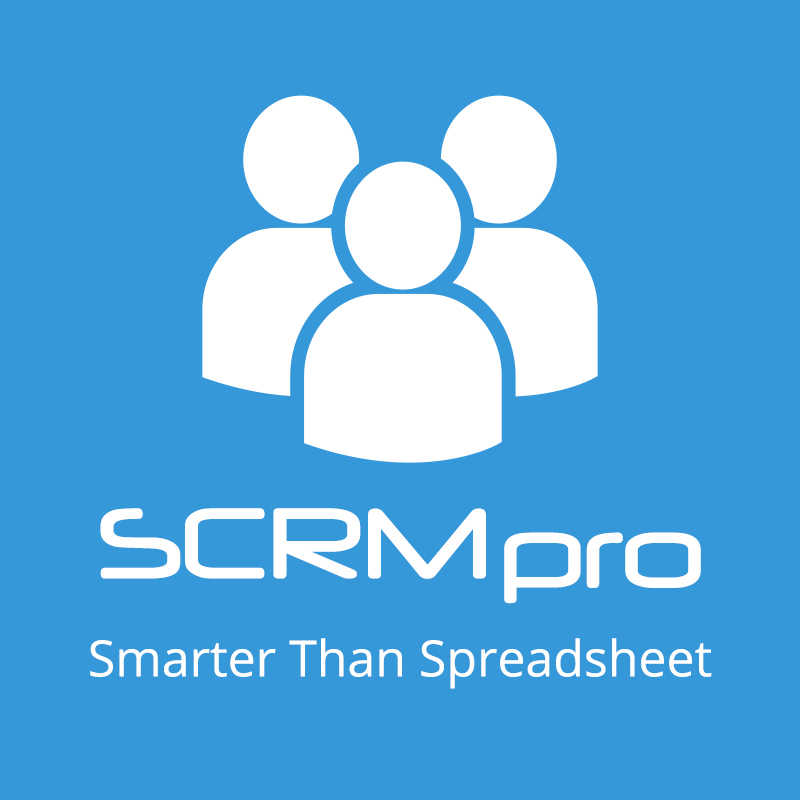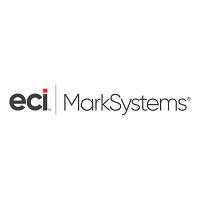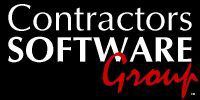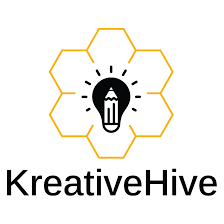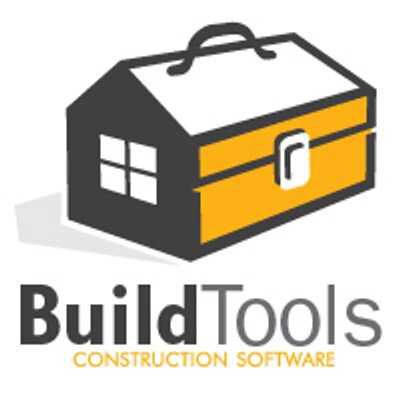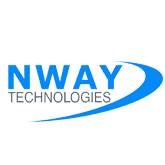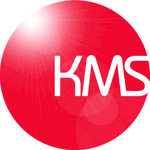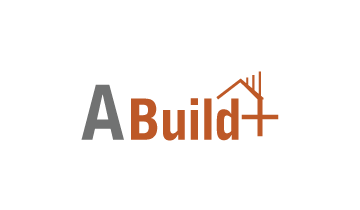What Is Construction CRM Software?
Construction CRM (client Relationship Management) software helps construction organizations manage and maintain client connections while streamlining business procedures. It is a specialist application created exclusively for the construction sector to assist firms in tracking and organizing client data, interactions, and opportunities.
Construction CRM software enables construction organizations to record and retain client information in a single database, providing easy access to customer details, communication history, and project statuses.This not only helps to provide tailored and efficient customer support, but it also aids in the identification of cross-selling and upselling prospects.
Another important feature of Construction CRM software is the ability to manage construction projects. This includes monitoring project timeframes, milestones, budgets, and team performance. With all of this information in one location, construction businesses can monitor project progress, identify any barriers, and make required changes to assure project success.
One of the primary advantages of using Construction CRM software is the ability to automate manual operations like lead capture, proposal production, and project updates. This not only saves time, but also minimizes the likelihood of errors and increases overall efficiency. Furthermore, Construction CRM software has extensive reporting and analytics capabilities, enabling businesses to obtain insights into their customers' behavior, project progress, and business success.
This allows firms to make data-driven decisions and enhance their processes to get better results. When selecting Construction CRM software, it is critical to examine capabilities such as lead and project management, document management, mobility, interfaces with other tools, and customisable reporting. It is also critical to select software that meets your specific business demands and provides proper training and support.
What Are The Recent Trends In Construction CRM Software?
The construction business is continually changing, with new technology, procedures, and practices being implemented to streamline operations and improve efficiency. In recent years, there has been an increase in the usage of Customer Relationship Management (CRM) software in construction. CRM software, originally designed for sales and marketing, has evolved into an essential tool for managing client connections and maintaining corporate operations in the construction industry.
In an increasingly digitized and competitive industry, construction companies are turning to CRM software to stay ahead of the curve. One of the most recent trends in construction CRM software is the inclusion of mobile functionality. In this fast-paced industry, construction personnel must have instant access to critical information.
Contractors and project managers may easily access data, amend schedules, and interact with clients and team members using their smartphones or tablets, ensuring that no critical information is lost. Another trend is the adoption of cloud-based CRM software. Construction organizations can use cloud computing to store and access data over the internet, reducing the need for pricey on-site servers.
Cloud-based CRM software facilitates cooperation among teams and provides real-time information, making project management more efficient and cost-effective. The rise of artificial intelligence (AI) and data analytics has found its way into construction CRM software. AI capabilities can help predict project timeframes, identify potential risks, and automate mundane operations, allowing construction experts to focus on more important responsibilities.
Data analytics, on the other hand, can provide useful insights into client behavior, allowing construction companies to modify their marketing and sales tactics accordingly. Finally, customisation and integration have become critical components of current construction CRM software. Companies can now modify their CRM software to match their individual company procedures and requirements.
Integration with other software, such as project management tools, accounting software, and lead generating platforms, enables smooth communication and data exchange between departments, leading to increased efficiency and productivity.
Benefits Of Using Construction CRM Software
As the construction industry becomes more competitive and complex, organizations must streamline their operations and strengthen client relationships. This is where construction CRM software comes into play. This sophisticated tool was created exclusively for the construction sector and offers several benefits to organizations of all sizes.
1. Centralized Project Management: Construction CRM software enables organizations to have a single location for all projects. This means that all project information, including deadlines, budgets, and documentation, can be accessed in a single location, making it easier to manage all aspects of a project.
2. Improved Collaboration: Construction CRM software enables team members to collaborate more efficiently, especially while working remotely. This may dramatically improve communication and guarantee that all team members are on the same page with project progress and updates.
3. Improved Lead Management: CRM software enables firms to track prospects and adjust communication methods based on each lead's stage in the sales cycle. This can lead to more conversions and better customer relationships.
4. Accurate Estimating And Bidding: Construction CRM software frequently offers capabilities that help organizations generate accurate estimates and bids. This can save time and resources while keeping bids competitive and lucrative.
5. Efficient Document Management: Construction projects generate a substantial volume of documentation, such as contracts, invoices, and plans. Businesses may use CRM software to save and manage all of these papers in digital format, making them more accessible and lowering the chance of lost or misplaced paperwork.
6. Real-Time Reporting: Access to real-time data and reports is critical for making sound business decisions. CRM software enables firms to easily generate reports on project progress, sales, and other key indicators.
7. Improved Customer Relationships: Construction CRM software enables organizations to track and manage customer interactions, gaining insight into their needs and preferences. This allows firms to adjust their offerings to match client expectations and increase overall customer happiness.
8. Customization And Scalability: Each construction firm is unique, and CRM software allows you to tailor the system to your individual needs. Furthermore, as a company grows, CRM software may expand to meet the growing demand and effort.
9. Cost And Time Savings: By optimizing operations and enhancing communication and collaboration, construction CRM software may help firms save time and money. This can lead to better productivity, efficiency, and, eventually, more revenues.
Important Factors To Consider While Purchasing Construction CRM Software?
When it comes to choosing construction CRM software, there are numerous key elements to consider in order to make the best option for your company. The features and functionalities, as well as the pricing and support, can all have a significant impact on the overall success of using a CRM system in your building processes. To assist you make an informed decision, we've identified some crucial elements to consider when selecting construction CRM software.
1. Industry-Specific Features: When it comes to building CRM software, it is critical to look for features that are tailored to your company's specific requirements. These capabilities may include project management, document and contract management, scheduling and planning, equipment tracking, and so on. Make sure you carefully assess the features offered by various CRM software and select the one that best meets your individual needs.
2. Integration Capabilities: By integrating with other systems and tools such as accounting software, project management software, and communication tools, you can improve the effectiveness of your construction CRM system. This saves time and streamlines your process by eliminating the need to transfer between several platforms. Consider the CRM software's interoperability and integration capabilities with your current systems to guarantee a smooth transition.
3. Mobile Accessibility: In the construction sector, working remotely or on-site is popular, therefore mobile mobility is an important element to consider. Look for CRM software that includes a mobile app or a web-based platform that works with a variety of devices. This will enable you and your team to access and edit project information in real time, regardless of location.
4. User-Friendliness: A CRM software's ease of use is critical because it influences system adoption and efficiency. Look for a user-friendly UI with straightforward navigation and a short learning curve. Consider requesting a demo or a free trial to assess the software's usefulness before making a final selection.
5. Customization Options: Each building company has its own distinct methods and requirements. As a result, it is critical to select CRM software that provides customization choices. This allows you to adjust the system to your exact requirements, resulting in a more personalized experience for your organization.
6. Cloud-Based Or On-Premise: Determine whether you prefer cloud-based or on-premise CRM software. Cloud-based software provides the benefits of remote access from any location with an internet connection, easy scalability, and automated upgrades. On the other hand, on-premise software gives you more control over your data and increases security. Consider your company's needs and budget while making this option.
7. Pricing And Support: Pricing is an important issue to consider when acquiring software. Examine your budget and the pricing options provided by various CRM software providers to determine the best fit for your company. Consider the vendor's degree of assistance, including as training, customer care, and technical support, to ensure that the program is implemented and used smoothly.
What Are The Key Features To Look For On Construction CRM Software?
When it comes to running a successful construction company, having dependable CRM (Customer Relationship Management) software is critical. Construction CRM software is meant to help construction companies streamline processes, improve client communication, and increase overall efficiency. With so many options available on the market, it might be difficult to choose the best one for your organization. To help you make an informed decision, here are some crucial characteristics to look for in building CRM software.
1. Project Management Capabilities: One of the key goals of using CRM software in construction is to manage projects efficiently. Look for software with project scheduling, work assignment, and progress tracking capabilities. This will help your team stay on track, collaborate efficiently, and avoid delays. A construction CRM should also allow you to create reports, track spending, and monitor project budgets.
2. Lead And Client Management: A decent CRM software should include a complete lead and customer management system. This comprises lead collecting, tracking, and reporting tools, as well as contact management and communication capabilities. A construction CRM should also be able to record and organize important customer data such as project preferences, communication history, and billing information. This will enable your team to give individualized service and strengthen client relationships.
3. Mobile Accessibility: Construction projects frequently require team members to be on-site, which means they may not always have access to their computer's software. Look for CRM software that has a mobile app or is completely designed for mobile use. This will enable your team to access critical project information, update tasks, and interact with clients and colleagues on the road.
4. Document Management: The building sector involves a substantial volume of documentation. A decent CRM software should include document management capabilities that allow you to save, organize, and exchange critical documents with your team and clients. This will save you time and effort searching for actual documents and reduce the likelihood of critical material being misplaced.
5. Integration With Existing Systems: If your organization already uses other software systems, it is critical to select a CRM that is compatible with them. This ensures that all of your data is synchronized and available from a single location. Look for CRMs that integrate with popular tools such as accounting software, project management software, and email marketing platforms.
Why Do Businesses Need Construction CRM Software?
In the fast-paced and competitive business of construction, good relationship and information management is critical to success. Here is where building CRM software comes in handy. Unlike typical customer relationship management software, Construction CRM is tailored to the construction industry's specialized requirements.
First and foremost, construction CRM software enables organizations to be organized and on top of their projects. It provides a consolidated platform for storing and maintaining critical client data, including as contact information, project specs, and communication history. This improves communication and collaboration, ensuring that everyone is on the same page and making sound judgments.
Furthermore, construction CRM software provides powerful project management tools that allow organizations to track project progress, timetables, and budgets. This not only boosts overall efficiency and production, but it also enables businesses to recognize and address possible delays or difficulties before they worsen. One of the most important elements of construction CRM software is the ability to manage customer connections.
Businesses can better understand their consumers' preferences and wants by utilizing extensive customer profiles and interaction histories. This allows businesses to provide individualized services, strengthen connections, and increase client happiness, all of which are critical for long-term success in the highly competitive construction industry.
Furthermore, construction CRM software supports extensive reporting and analytics, giving firms important insights into their performance and customer behavior. This data-driven strategy enables businesses to make better informed decisions and strategies, resulting in improved operations and profitability. Finally, construction CRM software is highly adaptable, allowing organizations to tailor it to their exact needs and specifications.
Companies can modify their construction CRM by adding project templates and workflows, as well as automation and connectivity with other software.
How Much Time Is Required To Implement Construction CRM Software?
The time required to set up construction CRM software varies depending on your construction company's specific demands and size. The installation method can take anywhere from a few weeks to several months. To begin, acknowledge that deploying new software will require time and effort from your team.
This includes data migration, training, and customization to meet your specific business requirements. The complexity of your CRM software also influences the deployment timeframe. Some building CRM systems are more sophisticated and may require a longer implementation period, while others are more user-friendly and can be setup quickly.
The level of customization required by your organization can significantly affect the installation timeline. If you have unique workflows or procedures that must be integrated into the CRM, it may take longer to create and test these changes. Furthermore, the availability and responsiveness of the software provider's support team can affect the implementation timeline.
A provider with a dedicated support team and a well-organized installation procedure can help to expedite the process. It is also vital to allocate time for sufficient training and onboarding for your team to ensure they are comfortable and confident in using the CRM software. This will help to maximize the software's effectiveness while reducing potential disruptions to your business operations.
What Is The Level Of Customization Available In Construction CRM Software?
Construction CRM software provides varied levels of customisation based on the buyer's individual needs and preferences. Most construction CRM software has a variety of adjustable features that allow users to personalize the software to their specific needs. At the most basic level, most construction CRM software provides customization capabilities like as field creation and editing, column addition and removal, and interface layout and design changes.
These basic customization features allow customers to tailor the software to their specific business operations, without requiring substantial technical expertise or coding skills. Some construction CRM software also provides significant customization possibilities, such as the ability to create new modules, integrate with third-party apps, and generate complex reports.
These advanced customization capabilities enable businesses to adjust software to their own workflows and processes, resulting in a fully personalized experience. In addition to functionality and workflow customization, certain construction CRM software allows you to brand the program with your company's logo and colors, establishing a consistent and professional image for the business.
Before purchasing building CRM software, purchasers should conduct extensive research and comparisons of the level of customisation given by various providers. This will help to guarantee that the software matches the business's specific demands and specifications while also being easily customizable to fit their unique operations.
Which Industries Can Benefit The Most From Construction CRM Software?
Construction CRM software can provide significant benefits to many sectors involved in the construction process. Its extensive features and functionalities can assist streamline processes, increase efficiency, and promote collaboration across teams.
we'll talk about which sectors can profit the most from this software and how.
1. Construction Companies: Construction CRM software is specifically intended to meet the needs of construction enterprises, making it the most obvious sector to benefit from it. Its project management and scheduling features can help construction companies plan and execute projects more efficiently. It also enables them to track progress, manage resources, and interact with clients and subcontractors effectively.
2. Architecture And Engineering Firms: Architecture and engineering firms are typically involved in the initial stages of a construction project. Construction CRM software may help them generate accurate project estimates, create proposals, and manage customer relationships. Its document management tool can also assist in keeping track of project drawings, plans, and change orders.
3. Real Estate Developers: Real estate developers can utilize Construction CRM software to manage their projects from start to finish. They may monitor project costs, manage several properties, and keep track of subcontractor bids and contracts. With its reporting and analytics capabilities, developers may acquire vital insights into project performance and make data-driven decisions.
4. Home Builders & Remodelers: Homebuilders and remodelers can use construction CRM software to manage their projects, coordinate with contractors and suppliers, and track new home sales. Its customer relationship management feature allows them to track client interactions, manage warranty claims, and assure customer satisfaction.
5. General Contractors: General contractors can benefit from Construction CRM software's bid management capability, which streamlines the bidding process and improves subcontractor management. They can also utilize the project management tools to keep track of essential tasks, monitor progress, and handle change orders. 6. Facility & Property Managers Construction CRM software enables facility and property managers to manage and maintain their properties, schedule preventative maintenance, and manage work orders. Its document management tool allows them to centralize property paperwork and track lease expirations.
Conclusion
In conclusion, selecting the right construction CRM software is critical to the success of your project management and customer relationship initiatives. As a potential buyer, you should conduct extensive research and analyze your options based on your individual business needs and objectives. Before selecting a decision, examine the most crucial features and functionality for your company, such as lead and contact management, project monitoring, and communication tools.
In addition, assess the software's usability and compatibility with your existing systems and processes. It is also recommended that you read reviews and request a demo or trial of the software to gain a better knowledge of its capabilities and usage. Furthermore, analyze the cost and pricing plans to verify they are within your budget and provide a fair return on investment.
Remember that the correct construction CRM software may help you optimize your operations, improve communication, and increase overall efficiency and productivity. We hope this buyer's guide has provided you with useful information to help you make an informed decision and select the finest software for your construction company.

